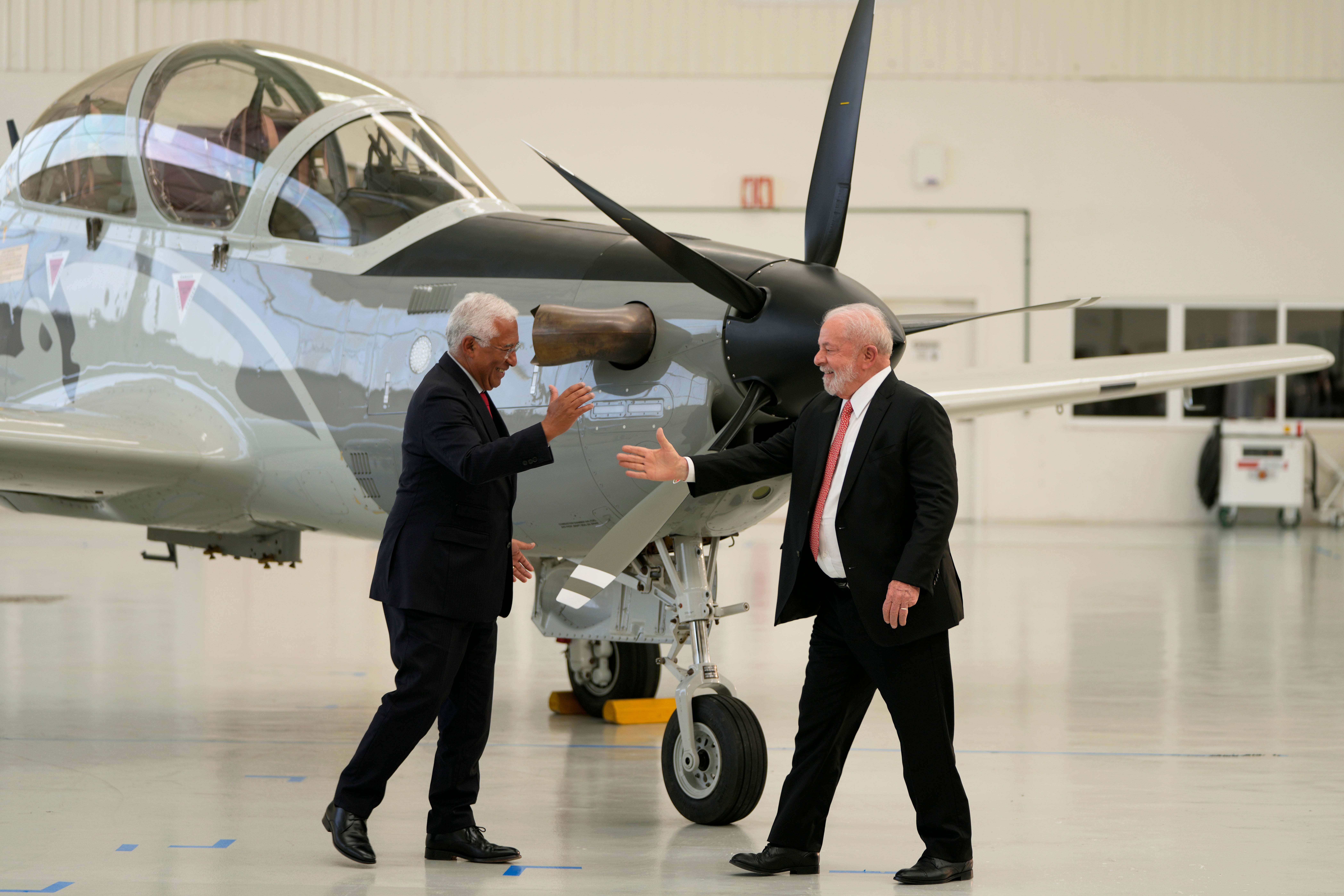Brazil's Lula visits Spain with Mercosur deal on agenda
Brazil's President Luiz Inácio Lula da Silva is due to arrive in Spain on the second stop of a European tour aimed at resetting relations and making progress on a trade deal between the EU and the Mercosur bloc of Argentina, Brazil, Paraguay and Uruguay

Your support helps us to tell the story
From reproductive rights to climate change to Big Tech, The Independent is on the ground when the story is developing. Whether it's investigating the financials of Elon Musk's pro-Trump PAC or producing our latest documentary, 'The A Word', which shines a light on the American women fighting for reproductive rights, we know how important it is to parse out the facts from the messaging.
At such a critical moment in US history, we need reporters on the ground. Your donation allows us to keep sending journalists to speak to both sides of the story.
The Independent is trusted by Americans across the entire political spectrum. And unlike many other quality news outlets, we choose not to lock Americans out of our reporting and analysis with paywalls. We believe quality journalism should be available to everyone, paid for by those who can afford it.
Your support makes all the difference.Brazil’s President Luiz Inácio Lula da Silva was due to arrive in Spain on Tuesday on the second stop of a European tour aimed at resetting relations and making progress on a long-delayed trade deal between the EU and the Mercosur bloc of Argentina, Brazil, Paraguay and Uruguay.
Following five days spent in Portugal, Lula will arrive in Madrid to attend a business forum this afternoon ahead of meetings with Spain's Prime Minister Pedro Sánchez and King Felipe VI on Wednesday.
The pending EU-Mercosur trade deal will be high on the agenda. The 27-member European Union completed negotiations with Mercosur in 2019, but ratification has stalled.
Spain takes over the rotating EU presidency in July, while Brazil will simultaneously assume the equivalent role in Mercosur. Both are eager to finalize pending aspects of the deal.
The Mercosur-EU agreement will mean the integration of a market of some 800 million people, about a fourth of the world’s gross domestic product and more than $100 billion in bilateral trade of goods and services. The deal would cut customs duties and ease access for agricultural exporters to the EU market, and for European manufacturers to Mercosur countries.
Ratification stalled due to EU worries over deforestation stoked during the leadership of Lula’s predecessor, Jair Bolsonaro, though Lula's re-election has assuaged these fears, according to Spanish officials. Bolsonaro defanged environmental authorities, encouraged illegal gold mining in Indigenous areas and oversaw a surge in deforestation to its fastest rate in two decades. However, France remains preoccupied with protecting its farmers from imported Latin American goods.
José Antonio Sanahuja, an international relations professor and special advisor to the EU’s high representative for foreign affairs, Josep Borrell, said Lula has strived to project his administration's environmental credentials.
“It was very difficult for the European community and parliament to accept an agreement given that (Bolsonaro's) nefarious environmental policy,” said Sanahuja, who is also director of the Carolina Foundation, which promotes educational and scientific cooperation internationally. More stringent environmental requirements may be added to the deal in annexes, he added.
The trip is an opportunity for Lula to ease tensions with Europe after his recent statements on Ukraine. Earlier this month, the Brazilian leader said that both Ukraine and Russia had decided to go to war, and claimed that the U.S. and EU were “stimulating” the fighting – drawing sharp rebukes from both.
During his first joint press conference with Portuguese President Marcelo Rebelo de Sousa, Lula made clear that Brazil condemned Russia’s occupation of Ukrainian territory, had voted to that effect at the United Nations, and denied ever having equating Ukraine with Russia. But he also said that anyone not talking about peace was contributing to war.
The risk is that Lula's repeated clarifications of his position will overshadow potential achievements, said Bruna Santos, director of the Brazil Institute at the Woodrow Wilson Center.
“Just like with his trip to China, his mentions regarding the situation in Ukraine took the focus of public opinion away from the results and economic ambitions of the visit,” Santos said regarding his recent travel to Portugal.
——
Biller reported from Rio de Janeiro